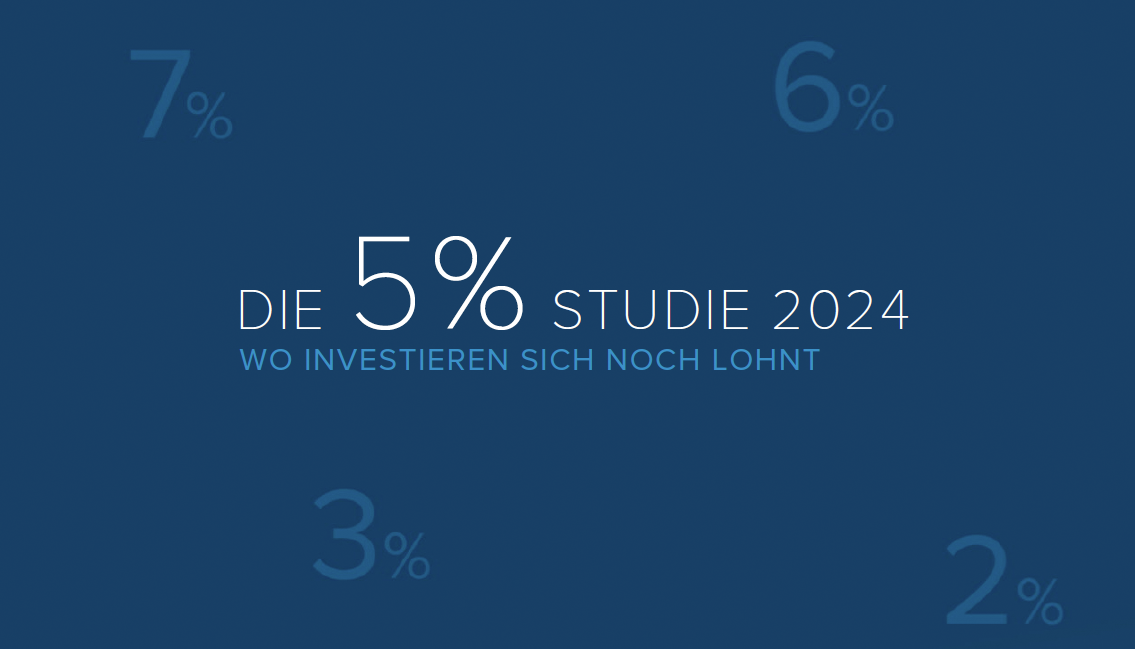Turning point in the real estate industry?
Hardly anyone expected that after the economic and geopolitical break in spring 2022 we would end the year without a major recession. But is Germany still as economically powerful as it still appears in many eyes? An economic assessment and real estate outlook.
The Federal Statistical Office has just reported growth of 1.8% for 2022. The signs for 2023 are also quite good. The consumer climate has been recovering steadily since last October.
But is it really like that? Is Germany still as economically powerful as it still appears in many eyes? Not at all.
The federal government has passed relief packages including electricity and gas price brakes of max. 225 billion euros, distributed until 2024. A help for many, without question. And the loss of purchasing power due to inflation can possibly be compensated by converting savings into consumption and additional consumption by one million immigrants from Ukraine.
However, the structural problems remain. In the meantime, Germany has accumulated EUR 1.7 trillion in special assets since the 2008 financial crisis. After the Corona Fund, in which Germany has a stake of €177 billion, another €100 billion is now being added for the Bundeswehr. That will probably not be the last word either.
Likewise, "the economy" - companies as well as consumers - is affected by the devaluation of all claims such as salaries, savings, life insurance contracts, rental contracts without index clauses, etc., which amounted to a full 12 % from the beginning of 2021 to October 2022. Also affected are the claims from so-called Target loans - simplified: intergovernmental loans - of the Deutsche Bundesbank amounting to 1.23 trillion euros; the loss from this alone amounts to 148 billion euros. Inflation came to stay - and further losses are looming.
Against this background, the turn of the times postulated by many politicians and experts must lead to an economic, political and structural change: In terms of tax policy, it is time to strengthen redistribution from top to bottom and establish a fairer taxation of income. Ultimately, everyone benefits from a strengthening of broad purchasing power.
In terms of energy policy, it is hard to understand why Germany does not assume its responsibility adequately. Neither are renewable energies being pushed forward as circumstances require, nor are the existing energy sources being used appropriately. Digitalisation is also not making much progress. This not only affects households and businesses in the countryside, but goes deep into research and production. And that dependence on China is causing and will cause problems is now a consensus.
Do we now have to start the year with our heads hanging low? The answer is the same as above: not at all.
We can rely on a well-functioning middle class with a very diversified economic structure. We need to promote this instead of creating more bureaucratic hurdles. The country is intelligent. It must stay that way, but it means redirecting resources into education and society. This includes an active immigration policy - we can't do it alone. Innovations need to be taken up. Biontech is a good, well-known example. There are others from medicine and environmental technology.
What does this turning point mean for our industry?
As said above, inflation is here to stay. The same applies to interest rates. In this respect, we are leaving a decade (or two decades with a short interruption) with a special boom for the real estate industry. Even though many say that we now have to reorient ourselves, we only have to remember how it was with inflation and interest rates. As was the case then, the quality of the projects is again being brought to the fore. Sustainability in terms of real estate economics is becoming more important as an assessment criterion for project development and purchase than prospective value appreciation.
However, what applies to the economy as a whole also applies to the real estate industry: energy challenges must be overcome, bureaucratisation in the sense of building regulations must be "gutted", and digital processes in project development and construction are prerequisites for a functioning real estate industry.
This change will affect all companies and have consequences for internal processes and qualifications. In addition, new ways will have to be found to compensate for rising energy prices and to meet future ESG criteria.
All in all, the next decade will be dedicated to real estate and asset management, with the aforementioned consequences for building regulations (usually developed for new construction rather than existing buildings), processes and, of course, employee qualification.
Contact: Ralf-Peter Koschny, Member of the Board, koschny@bulwiengesa.de
You might also be interested in
For our magazine, we have summarized relevant topics, often based on our studies, analyses and projects, and prepared them in a reader-friendly way. This guarantees a quick overview of the latest news from the real estate industry.
Little movement on the German real estate market
For the eleventh time, bulwiengesa presents its comprehensive analysis of the German real estate markets. The results of this year's 5% study, conducted in collaboration with ADVANT Beiten, show that the German real estate market is characterized by widespread stagnation. At the same time, niche segments are becoming increasingly attractive. The market is increasingly rewarding professional asset management and specialist knowledge—a trend that separates the wheat from the chaffFive per cent returns no longer illusory even for core properties
The ‘5% study - where investing is still worthwhile’ celebrates its tenth anniversary. Since the first edition was published, the German property market has tarnished its reputation as a safe investment haven. Higher yields are now within sight, even for prime properties, and even residential property is increasingly becoming a profitable asset class again. The market is more exciting than it has been for a long timeValuation for corporate insolvencies
In turbulent times, more companies than ever are facing insolvency. According to our data alone, this affects around 400 project developments and countless existing properties. Ideally, valuations for insolvency administrations show more than the actual valueInteresting publications
Here you will find studies and analyses, some of which we have prepared on behalf of customers or on our own initiative based on our data and market expertise. You can download and read many of them free of charge here.







